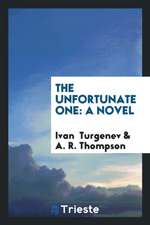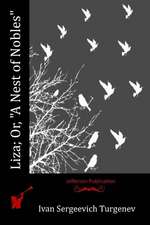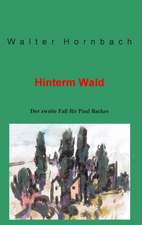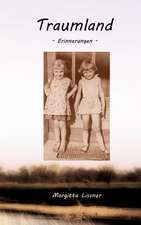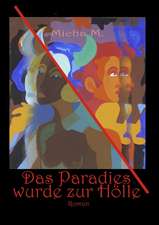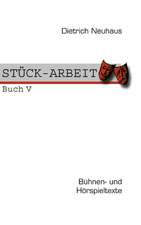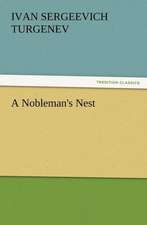Mumu and Kassyan of Fair Springs
Autor Ivan Sergeevich Turgeneven Limba Engleză Paperback – 31 mai 2003
Preț: 95.61 lei
Nou
Puncte Express: 143
Preț estimativ în valută:
18.29€ • 19.10$ • 15.14£
18.29€ • 19.10$ • 15.14£
Carte tipărită la comandă
Livrare economică 05-19 aprilie
Preluare comenzi: 021 569.72.76
Specificații
ISBN-13: 9781410102898
ISBN-10: 1410102890
Pagini: 104
Dimensiuni: 154 x 229 x 7 mm
Greutate: 0.17 kg
Editura: Fredonia Books (NL)
Locul publicării:United States
ISBN-10: 1410102890
Pagini: 104
Dimensiuni: 154 x 229 x 7 mm
Greutate: 0.17 kg
Editura: Fredonia Books (NL)
Locul publicării:United States
Notă biografică
Ivan Sergeyevich Turgenev (1818 - 1883) was a Russian novelist, short story writer, poet, playwright, translator and popularizer of Russian literature in the West. His first major publication, a short story collection entitled A Sportsman's Sketches (1852), was a milestone of Russian realism and his novel Fathers and Sons (1862) is regarded as one of the major works of 19th-century fiction. Turgenev's artistic purity made him a favorite of like-minded novelists of the next generation, such as Henry James and Joseph Conrad, both of whom greatly preferred Turgenev to Tolstoy and Dostoyevsky. James, who wrote no fewer than five critical essays on Turgenev's work, claimed that "his merit of form is of the first order" (1873) and praised his "exquisite delicacy", which "makes too many of his rivals appear to hold us, in comparison, by violent means and introduce us, in comparison, to vulgar things" (1896). Vladimir Nabokov, notorious for his casual dismissal of many great writers, praised Turgenev's "plastic musical flowing prose", but criticized his "labored epilogues" and "banal handling of plots". Nabokov stated that Turgenev "is not a great writer, though a pleasant one" and ranked him fourth among nineteenth-century Russian prose writers, behind Tolstoy, Gogol and Anton Chekhov, but ahead of Dostoyevsky. His idealistic ideas about love, specifically the devotion a wife should show her husband, were cynically referred to by characters in Chekhov's "An Anonymous Story".


